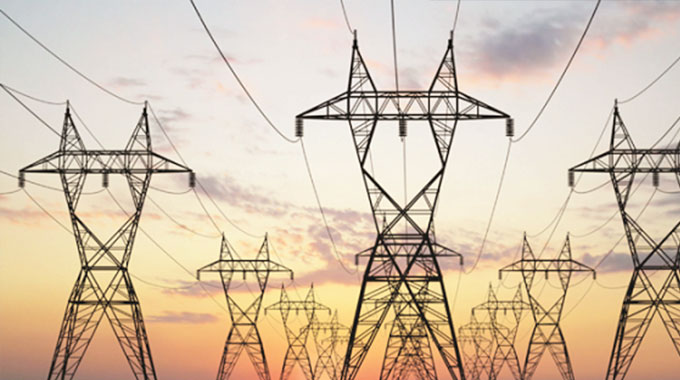
Harare Bureau
INDUSTRY is assured of consistent power supply after State power utility Zesa Holdings said it will not effect load shedding until end of this year despite recent significant increase in demand for electricity.
Up to June demand had been sitting at 1200 megawatts (MW) mainly due to lockdown restrictions, but has since creeped up to 1450MW and the anticipation is that demand will remain at these levels with no expectation of load shedding for rest of the year.
Confederation of Zimbabwe Industries (CZI) chief executive Sekai Kuvarika said in an interview that Zesa had given assurance during a webnar meeting with the power utility and Ministry of Industry that It will not cut power supply until the end of this year.
Efforts to get a comment from Zesa were not successful yesterday although indications were that the power utility was generating power at significantly higher levels, at times full throttle in Kariba after the dam water levels rose to 41 percent of the reservoir’s live water capacity. But Ms Kuvarika said earlier indications from Zesa were that there had been an improvement on the supply side, apparently on account of increased output at Kariba South, which until recently was being constrained by critically low water levels.
Following a review of hydrological outlook at Kariba, which was undertaken at the end of the second quarter of 2020, the Zambezi River Authority (ZRA) has since increased the water allocation for power generation operations at the Kariba Dam by 4 billion Cubic Meters (4BCM). This upward revision of the combined water allocation resulted in increase in the total amount of water allocated by ZRA, which administers the affairs of Kariba Dam and Zambezi River, for the year 2020 from 23BCM to 27BCM.
The CZI CEO noted that prior to the improved power supply situation, mostly in the first quarter of this year, business was only able to get electricity for about 30 percent of the time they required the power.
Zimbabwe had been experiencing acute shortage of power due to drought experienced last year, which had reduced the water resource at Kariba Dam to critical levels leading to limited generation at the country’s largest plant.
Kariba South had its generation capacity increased from 750MW to 1050MW, but the plant had never operated at its full potential due to limitations of low water levels.
The country would endure power cuts of up to 18 hours or more a day, seriously disrupting industrial production and other commercial operations and household activities.
The power shortages were also a result of aged equipment at the country’s thermal power facilities, especially the 920MW Hwange Power Station, which now churns out only a fraction of its potential.
Ms Kuvarika said given that industry had always been depressed even before the lockdown and while power cuts were a common phenomenon, the logical reason for consistent availability would therefore be improvement on the supply side.
“This means we have got enough supply up to December, what we then need to do is that this is a planning window, if we anticipate shortages next year, we have got six months to put contingency measures in place if one wanted to invest in solar or improve energy efficiency. Secondly, I think we have to maximise using the available electricity, although the problem right now is that we have other constraints due to Covid-19 restrictions. Covid-19 itself and other effects that it is having on the economy, otherwise businesses could maximise production using that electricity,” she said.
Ms Kuvarika said that although power supply had improved, industry was still facing serious challenges that have forced production to continue on downward spiral, especially stemming from rising inflation, weakening domestic currency and the loss of disposable incomes. Further, she said survey findings had indicated that rationalisation would be inevitable given the serious negative impact of the Covid-19 pandemic and the generally tough operating economic environment.
